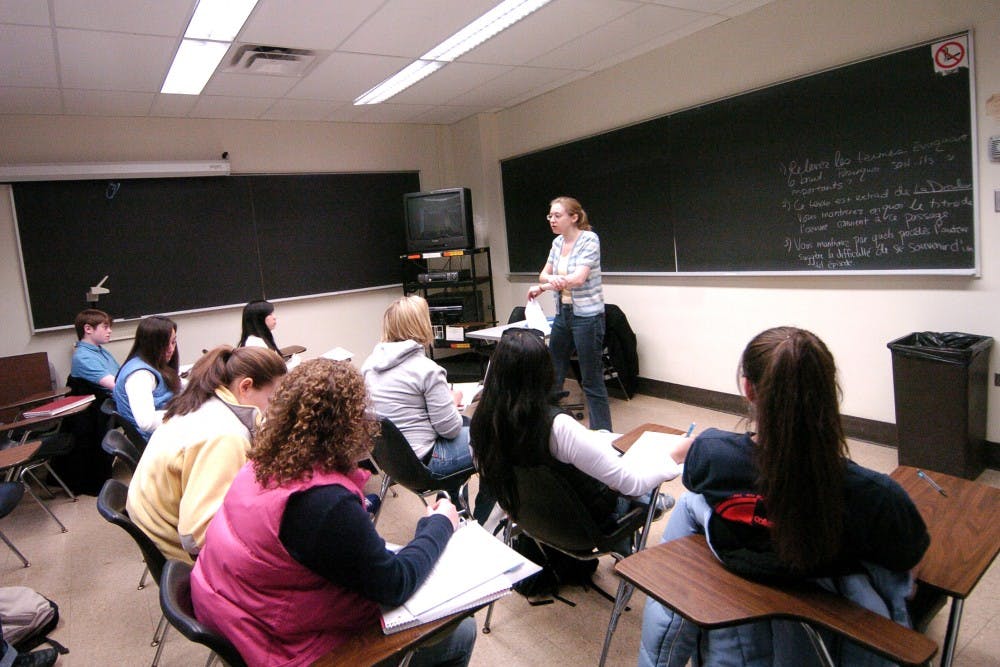
Higher education has seen a recent trend of hiring more adjunct professors, who are not on the tenure track and are paid to teach, not to research. At Penn, however, adjuncts are only a small portion of non-faculty instructors.
Penn employs instructors including graduate students, lecturers and adjuncts that are not in the same category as tenure track-professors. Despite the fact that both groups teach classes, their experiences differ in both compensation and role within the University. The Huffington Post reported that adjuncts typically earn between $20,000 and $25,0000 annually, as compared to the $84,303 made on average by full-time instructors and professors.
“From a labor standpoint, someone who is a senior lecturer doesn’t have the same pay, same relationship with the faculty. From the student standpoint it may not be so meaningful. They don’t occupy the same space, [but] that doesn’t mean they’re not excellent teachers,” said Bruce Lenthall, executive director of the Center for Teaching and Learning and Advisor on Educational Initiatives to the Vice Provost for Education.
But at Penn, different types of instructors are best suited for different areas of study.
“There are a couple of areas in our curriculum where we rely almost exclusively on non-standing faculty,” Associate Dean & Director of Academic Affairs Kent Peterman said, adding that “different departments work this really differently, and put lecturers in different roles.”
Many of Penn’s mathematics, language and writing seminar classes fall under this umbrella. These classes, which are more concerned with teaching students specific skills rather than relying on any specialized information, are particularly suited for specialized instructors, Peterman said.
While the teaching quality may not differ, there can be a downside for students taking many classes taught by lecturers or adjuncts rather than faculty members. Lenthall said that for students hoping to perform research at Penn, making connections with faculty who actually conduct research may be more difficult if the student has not taken a class with them.
“Unless a student makes a concerted effort, it can be hard to get to know faculty because the class may be taught by a lecturer,” Lenthall said.
Students rarely perceive the differences between tenured professors and other instructors.
“I don’t know if I have any classes with an adjunct professor,” College freshman Adrian Kase said.
Other factors seem to make a greater difference in students’ experiences at Penn. What makes an instructor “good” seems to be a more intangible quality than a decorated CV.
“I’ve found that I’ve liked the TAs that have taught me as much if not more than the tenured professors I’ve had. Oftentimes I find them more enthusiastic and engaging than some older tenured professors who seem out of touch with the best ways to teach students,” Kase said.
Other students prefer classes taught by seasoned faculty experts. “To me, teaching quality seems to be affected more by experience,” College freshman Daniel Chung said.
While Penn’s system of non-faculty instructors might slip under students’ radars, their teaching serves an integral role in Penn’s academic structure.
“We would be a much poorer University without the contributions of people who aren’t standing faculty,” Peterman said.
The Daily Pennsylvanian is an independent, student-run newspaper. Please consider making a donation to support the coverage that shapes the University. Your generosity ensures a future of strong journalism at Penn.
DonatePlease note All comments are eligible for publication in The Daily Pennsylvanian.




